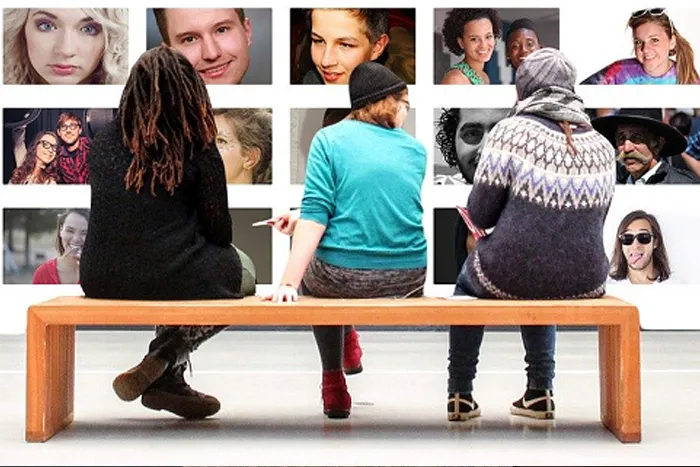Post-concussion syndrome
In the midst of darkness, light persists.
–Mahatma Gandhi
The impact of post-concussion syndrome
About 200,000 Canadians are reported to sustain concussions every year. It is estimated about 20-25% of these patients have prolonged symptoms lasting several months and sometimes years. Females and the elderly are at higher risk of prolonged symptoms. It may be that those who sustain their concussions during motor vehicle accidents (MVAs), slips and falls and assaults may be have a more prolonged recovery that sports-related concussions.
Post-concussion syndrome is not a real diagnostic term anymore as there seems to be a wide range in how these patients experience post-concussion symptoms. The term is now persistent concussion symptoms (PCS). So, to know the impact of PCS we need to know which diagnoses patients have as part of their PCS (see section “Disability associated with post-concussion syndrome” below).
Symptoms of post-concussion syndrome
The most common symptoms of PCS include:
- fatigue
- headache
- dizziness
- insomnia
- affective disturbances like depression, anxiety, trauma-related reactions, etc.
- cognitive dysfunction like decreased memory, attention, language processing, executive functioning, etc.
- visual dysfunction like blurry vision, double vision, visual processing issues, etc.
- Post-traumatic brain injury fatigue (PTBIF)
- Post-traumatic headache (with varying ways in which it presents clinically)
- Sensory integration dysfunction (SID), benign paroxysmal positional vertigo
- Sleep-wake disturbances (SWD) post-TBI
- Post-traumatic stress disorder (PTSD), generalized anxiety disorder (GAD), major depressive disorder (MDD), panic disorder (PD)
- Mild neurocognitive disorder
- Post-concussion vision syndrome
Disability associated with post-concussion syndrome
As mentioned earlier, the disability that patients experience from their PCS will depend on the conditions that define their PCS. We will review some of the common conditions experienced by PCS patients and their impact.
Fatigue
Fatigue is one of the three most common symptoms of mild traumatic brain injury interfering with participation in work, home and social activities and, thereby, reducing quality of life. Fatigue levels predict timing of return to work. There is evidence of physiological abnormalities in many with post-traumatic brain injury fatigue (PTBIF) even years after the concussion. Exceeding one’s energy capabilities may represent an alternative pathway to chronic disability after injury. It has also been shown to predict prolonged post-concussion symptoms, anxiety and disability after mTBI.
Headache
Post-traumatic headache accounts for 4% of all headaches. Post-traumatic headache is a secondary headache, that is to say, it happens secondary to trauma. Primary headache types are headache that happen “just because”. For example, migraine is a primary headache type. Even if a post-traumatic headache looks like a migraine, it’s not technically a migraine. Furthermore, there is no evidence that post-traumatic headaches respond to pharmacological management the way migraines often do. Generally headaches improve with time but still studies have reported that over half of PCS patients with headaches still have headaches a year after the injury. Interestingly, those with concussions have a higher incidence of post-traumatic headache when compared to moderate and severe TBI patients. Effective treatment is important to optimize quality of life as those with persistent headache may have higher levels of disability and a less active lifestyle than prior to injury.
Dizziness
There are many causes of post-concussion dizziness. Dizziness is the third most commonly reported concussion-related symptom after fatigue and headache, respectively. Dizziness affects up to 80% of patients in the first few days following a head injury. This statistic is concerning as dizziness may be a predictor of prolonged recovery. It often persists after mTBI, with up to a fifth of patients still symptomatic five years later. Prolonged dizziness can also increase risk of falls, automobile accidents, interrupted workdays, dysfunctional gait, and a delay in return to activity and sport. Those with mild or moderate TBI with dizziness are more anxious, have higher reports of depression, higher scores on outcomes identifying psychosocial dysfunction and are less likely to return to work.
Insomnia
Insomnia post-concussion reportedly occurs in 33% of patients at first. However, at about 1 year post-injury, the prevalence of insomnia in PCS patients grows to 50%. Even at 5 years from the injury, the incidence of PCS is about 25%, 2.5 times what it is in the general population (i.e., 10%). Sleep problems post-mTBI are associated with increased daytime sleepiness, chronic fatigue, behavioral and neurocognitive problems, depressed mood, poorer self-reported overall health, and delay of recovery or return to work.
Vision
Studies have reported that anywhere between 30-70% of post-concussion patients have visual abnormalities post-concussion. Moreover, these visual abnormalities often are not identified during routine optometric visits. Visual issues post-concussion are related to poor academic performance and poor performance at work. Treating these visual issues can help quicken progress in other rehabilitation programs such as physical therapy, occupational therapy, speech therapy, and cognitive therapy. Post-concussion visual issues untreated can lead to persisting symptoms of difficulties with balance, crowded environments, motion sensitivity, screen use, and reading.
Psychological disturbances
There are a wide variety of affective symptoms and psychiatric diagnoses that can be experienced post-concussion. Generally, psychological consequences post-concussion can be disabling in and of themselves, but can also worsen other post-concussion symptoms. For example, depression has been found to be increased after TBI of any severity and is frequently associated with headache. Psychological factors are among the most robust predictors of unfavorable outcome from mTBI.
Cognitive dysfunction
Even for seemingly simple tasks, many PCS brains display high degree neuronal recruitment. This means, their brains are hyperactive. Think about being hyperactive (like a beginner) when swinging a golf club; limbs are flailing all over the place and the ball doesn’t go that far. By comparison, skilled golfers don’t move very much, but they are quite coordinated and ball gets hit very far and accurately. Like that, to perform cognitive tasks with skill and efficiency, we need to have the right amount of brain areas in the right amount being used. Persistent cognitive symptoms, especially impairments to executive functioning, greatly impact patients ability to return to work after concussion. Furthermore, decreased cognitive efficiency, coupled with the taxing elements of depression and anxiety, can profoundly impact the patients’ ability to function.
The neuropsychological underpinnings of post-concussion syndrome
What is post-concussion syndrome?
Everything you do, from how you regulate your emotions to how you regulate your body temperature, is controlled by your brain. Many of these things happen without your conscious input. That is, they seem to happen automatically. But, your brain does these things because of the way you developed, your genetics, your education and life experiences. Everything from mundane functions to highly-skilled functions that you perform has their roots in your brains ability to fire efficiently and in a coordinated fashion. In the face of a concussion, parts of these circuits get interrupted and so you can’t do these functions the same anymore. So, patients find other ways of doing tasks. For example, if someone were to sprain their ankle, they will start to limp and move differently to get around. One would think that when the ankle heals, everything would go back to normal, right? Turns out that even for ankle sprain, this is not the case for the majority of patients (i.e., 90%). The only way they can recover from this “post-ankle sprain syndrome” (recurrent ankle sprains, worse athletic performance) is to train the way they move their body – i.e., which muscles they fire, and how much, and in what sequence for for different movements they want to perform. Similarly, for PCS patients, many functions like reading, regulating your blood pressure when you change positions, regulating your emotions, finding words when speaking don’t snap back in place. In these cases, we have to train it. Fortunately, you’ve done it once before during your neurodevelopment and so the training strategies see you repeat exercises that helped you develop these the first time around. Except, this time you will do it more consciously.
Post-concussion syndrome treatments
The treatment approach is different for every patient. If a medical problem is causing or contributing to your insomnia, it should first be treated so you can sleep better. For example, if you snore loudly at night because you have undiagnosed, untreated sleep apnea, getting a proper diagnosis and treatment (e.g., using a CPAP machine at night) will already improve your sleep. For chronic insomnia, there are two specific, first-line, evidence-based treatment options available.
Education
Because in PCS, patients are experiencing impairments of things that used to happen “automatically”, without conscious attention, it is helpful to learn about normal physiology. For example, it’s useful to learn what normal sleep physiology is, and the types of thoughts and behaviours that can help invite good sleep back into your nights. This is true even for those patient who were good sleepers before their concussions. Sometimes, it’s especially true for these patients because these are the patients who often have the least awareness of what they were doing well to help themselves get good sleep.
Multidisciplinary approach
Because brain injuries have far-reaching effects, patients are benefitted by involving many different disciplines in their care. For example, medical doctors often diagnose the condition and optimize general medical conditions. Sometimes they prescribe medication to help you cope with some of your symptoms. Occupational therapists are instrumental in helping you invest your effort in a way that sees you improving the fastest while taking care of day-to-day things that must get done. They also help ensure a successful return to work. Psychologists and psychotherapists can help you to improve psychological factors that can also help improve your recovery. Speech and language pathologists often help with language-related impairments post-concussion. Physiotherapists and chiropractors often help with post-concussion dizziness, neuromuscular control issues and musculoskeletal pain. Massage therapists help with pain management and relaxation. Optometrists help you manage visual symptoms better and train your visual system back to where you need it to be. And there are many more disciplines and treatments that may be helpful in your post-concussion recovery.
Passive treatments
Passive treatments refer to treatments that are being done on you, or are helping you cope with your post-concussion symptoms. For example, massage therapy and other manual techniques to help alleviate your symptoms are done on you and don’t require your active involvement. Generally, they may help you cope better with your symptoms but their effects often where off when you stop continuing the treatment. These therapies are not focused on changing the way your brain fires so that you perform more efficiently.
Active training
Active training involves active participation by the patient. It focuses on training your physiology to do what you want it to do. At first, we try to get your brain to experience a situation in a way that you want to experience it. Then, you try to do it over and over again until it becomes a habit; it becomes the new you. For example, take sleep training in those post-concussion patients who have insomnia. Active training will involve you following certain strategies – even when it’s challenging to do so – so that we can shape your physiology to sleep better. This will involve changing the types of activities you do, and when you do them and your thought structure around situations that may be making good sleep more elusive. It will involve learning new skills like progressive muscle relaxation. It will involve you monitoring your sleep. It will involve you following certain rules to maintain a specific sleep schedule. All of this together will help you shape your physiology so your nervous system becomes efficient at sleeping.
Medication
Medication is generally not a first line treatment option in persistent concussion symptoms. Medications roles is generally to help patients better cope with symptoms so that they can function better, and perhaps better participate in therapy.
What happens to post-concussion syndrome if you do nothing about it and try to wait it out?
Many statistics were provided above in the section “Disability associated with post-concussion syndrome”. This varies a lot from case to case. However, for many patients their symptoms will get better with time. For some patients, they get better but don’t get as good as they were before the injury. For some patients they get worse with time.
Relevant OHIP-funded Group Counselling
Post-concussion syndrome services offered in...

Medical Assessment
OHIP-funded medical assessments for behavioural & lifestyle interventions



